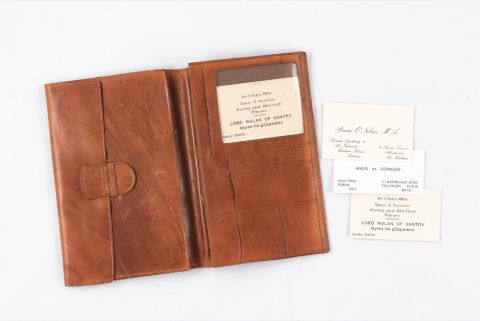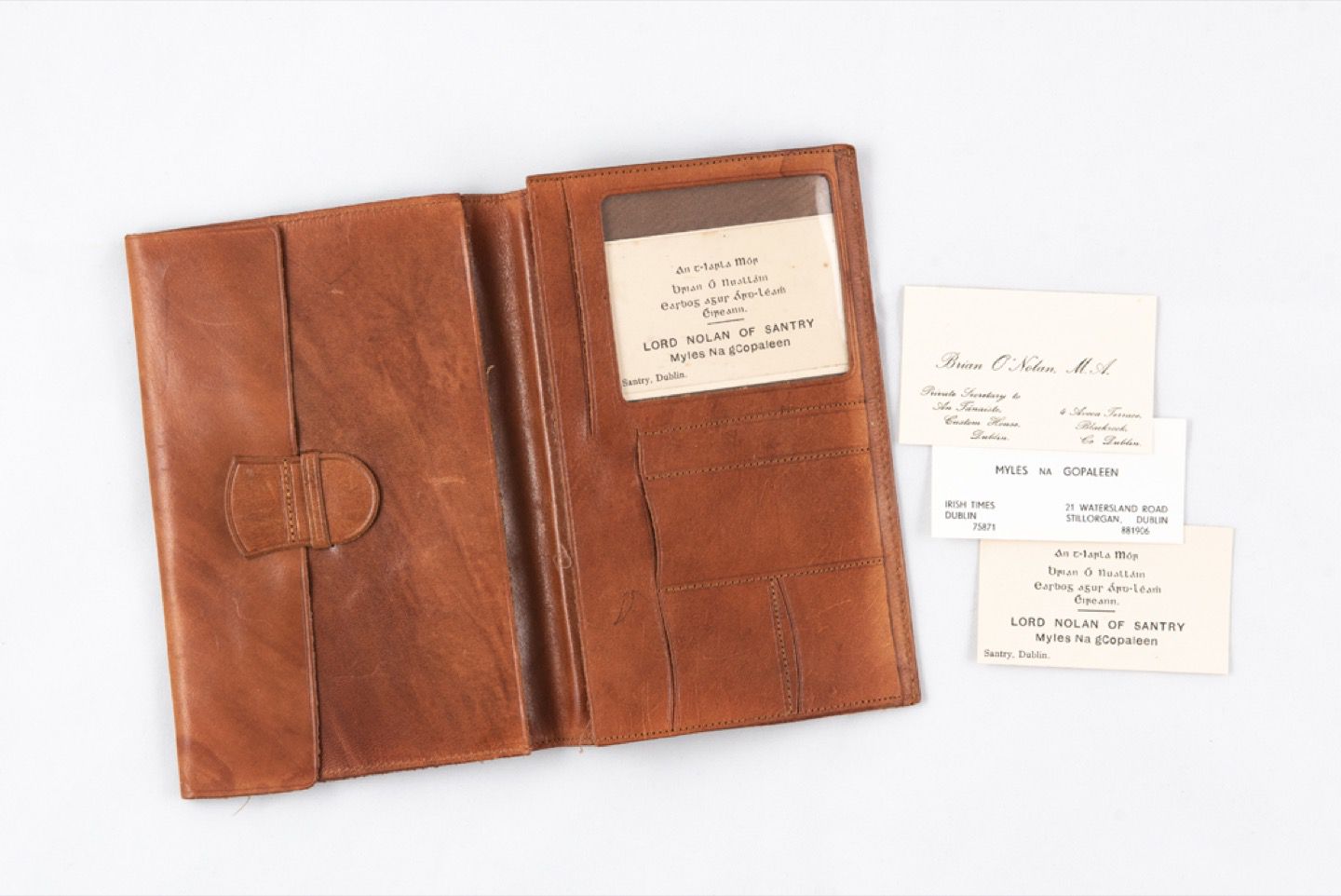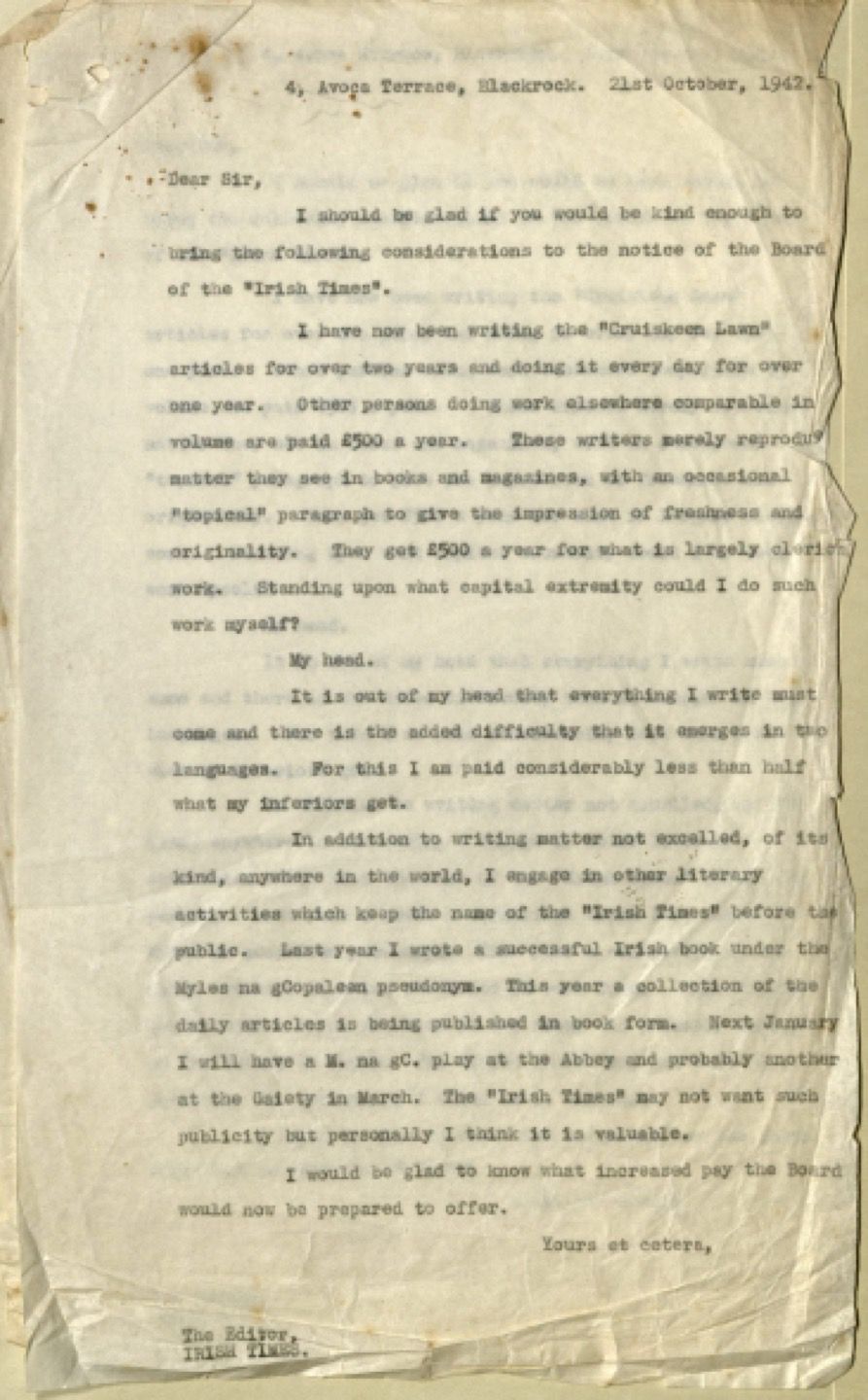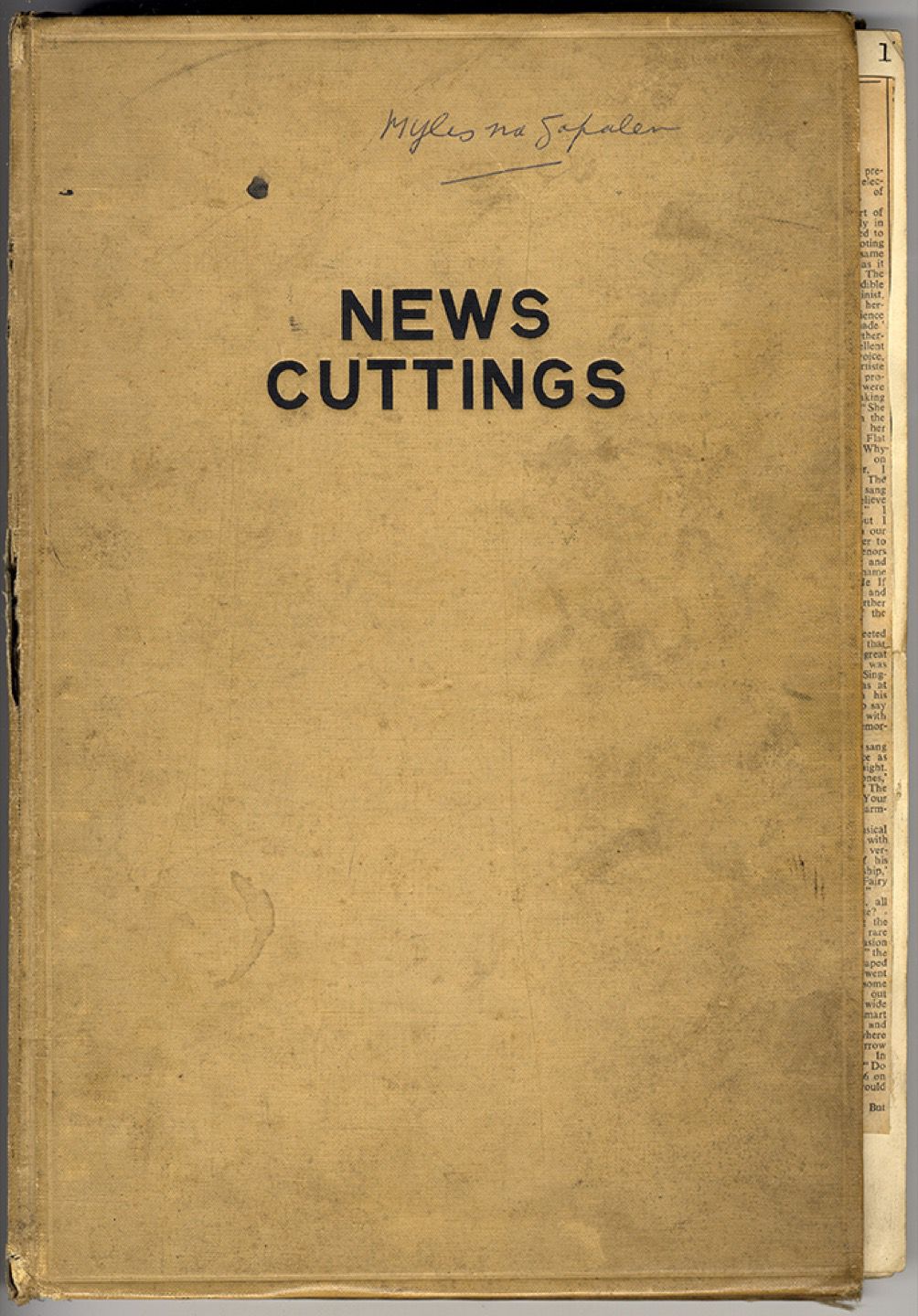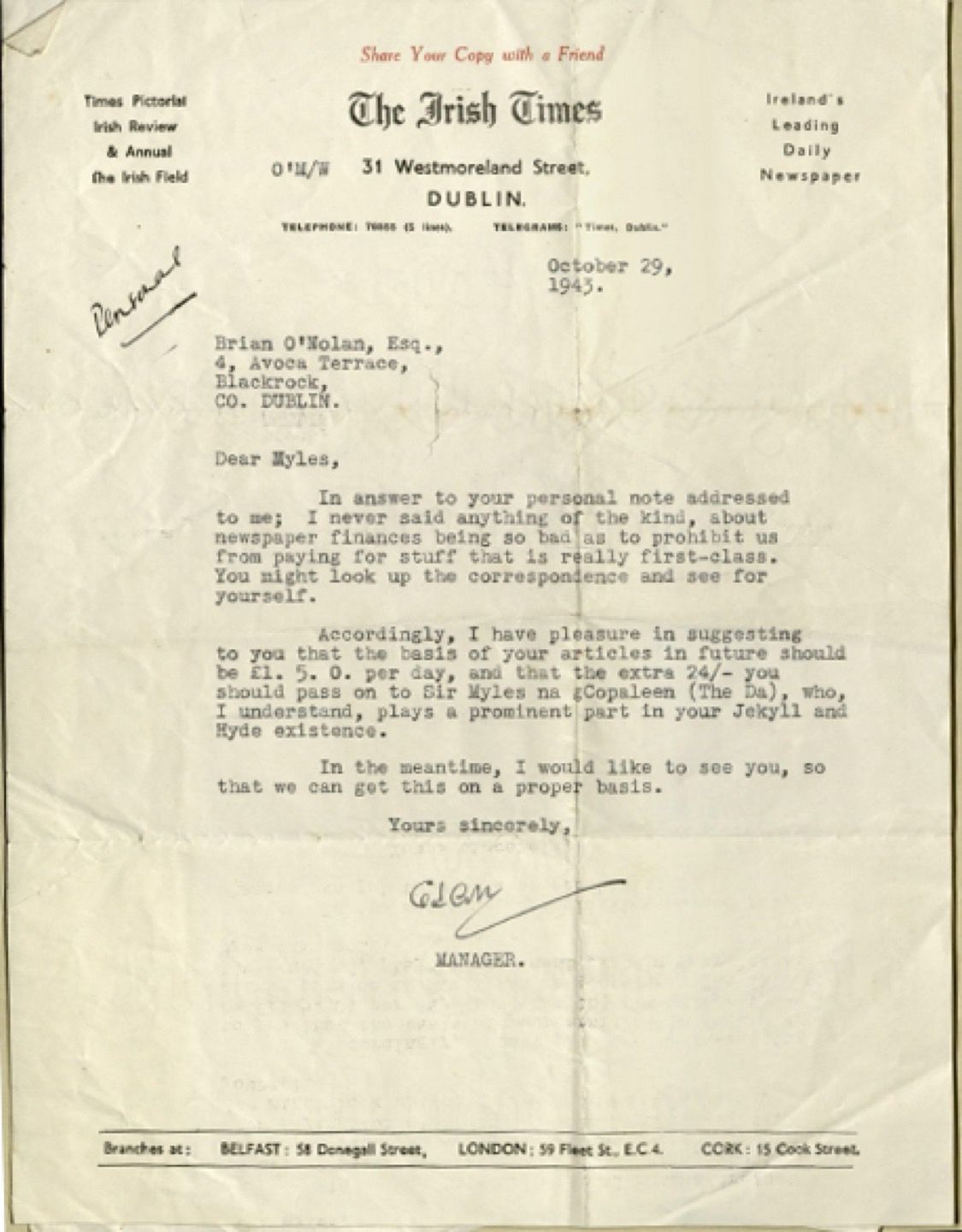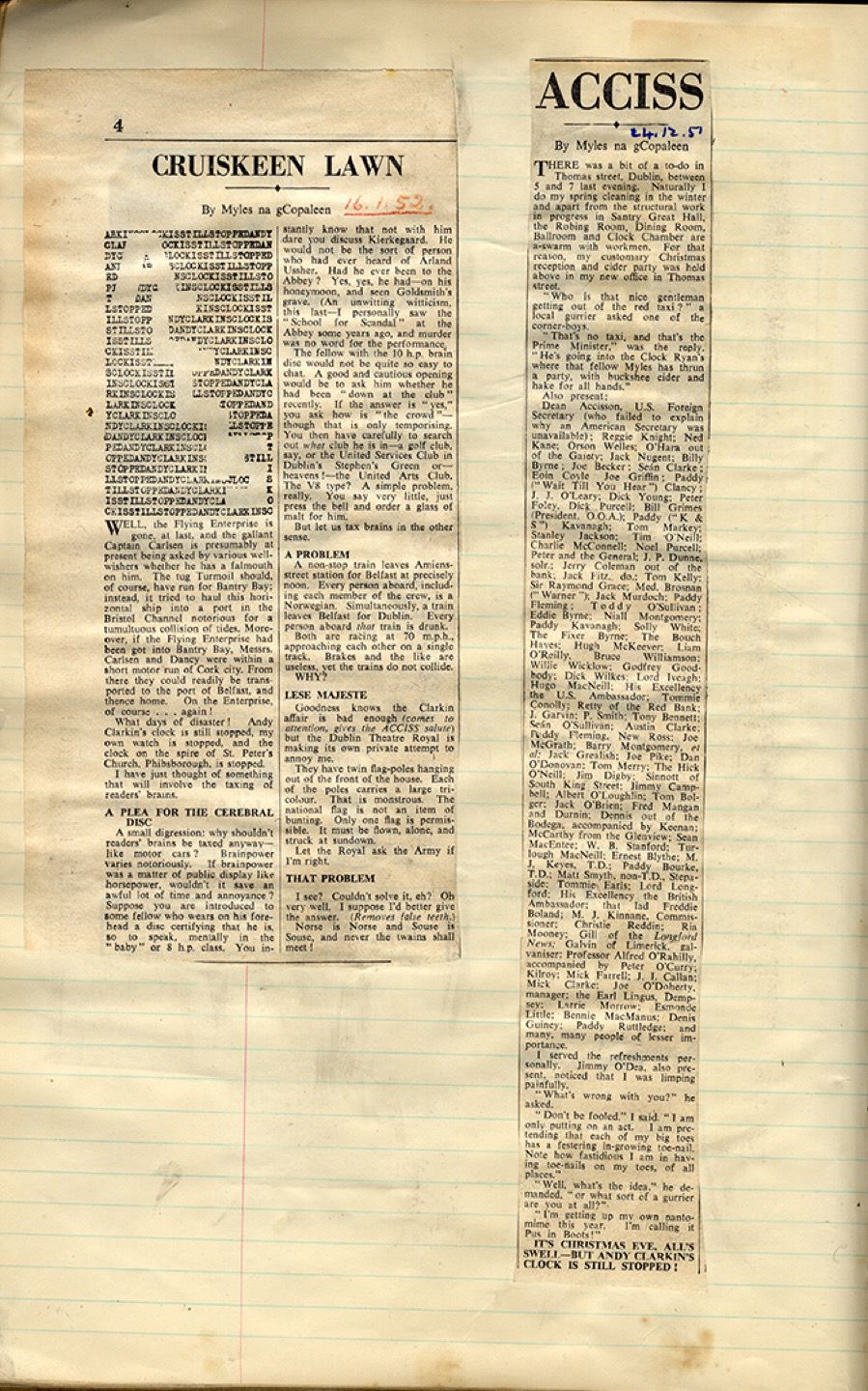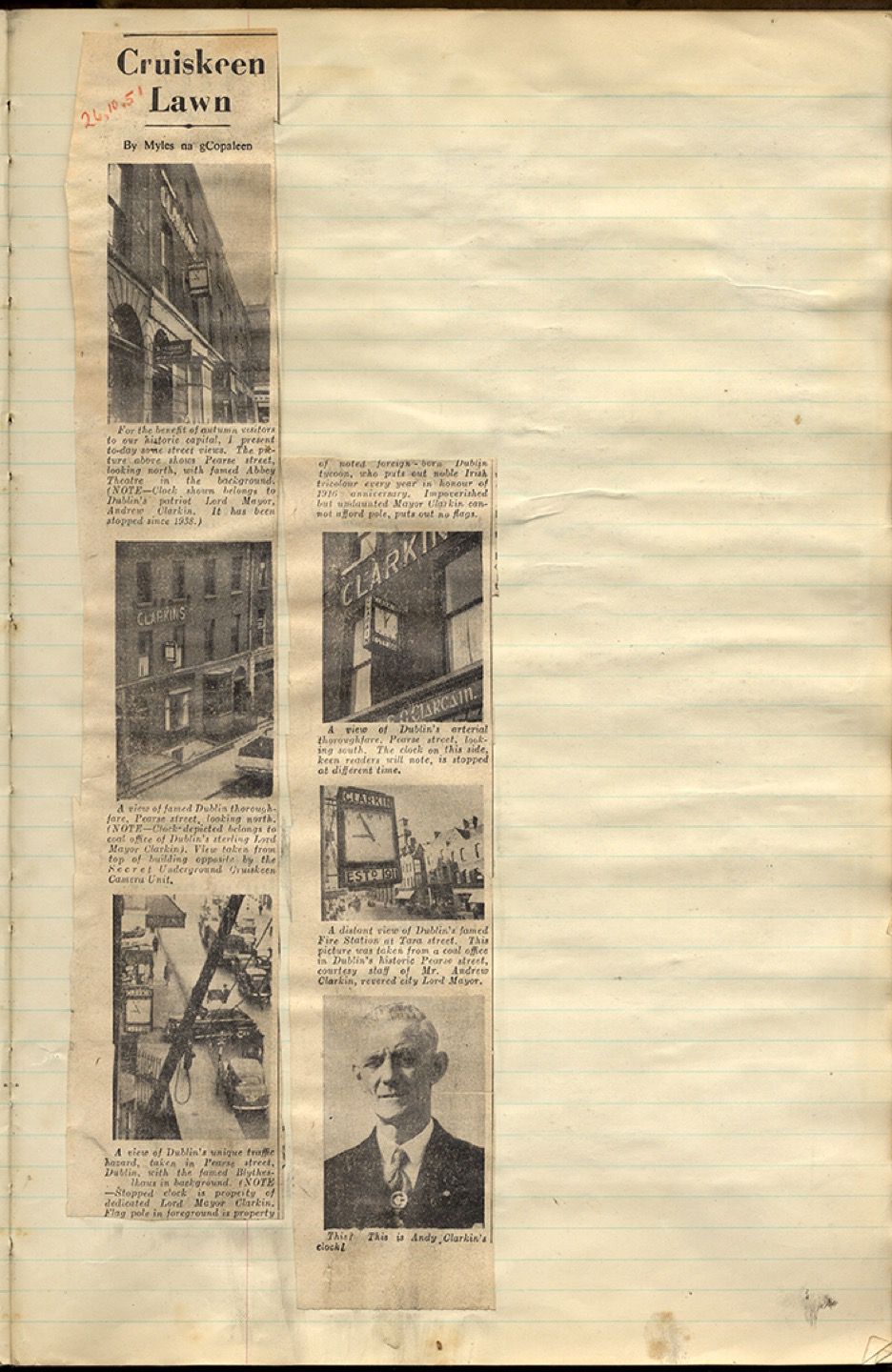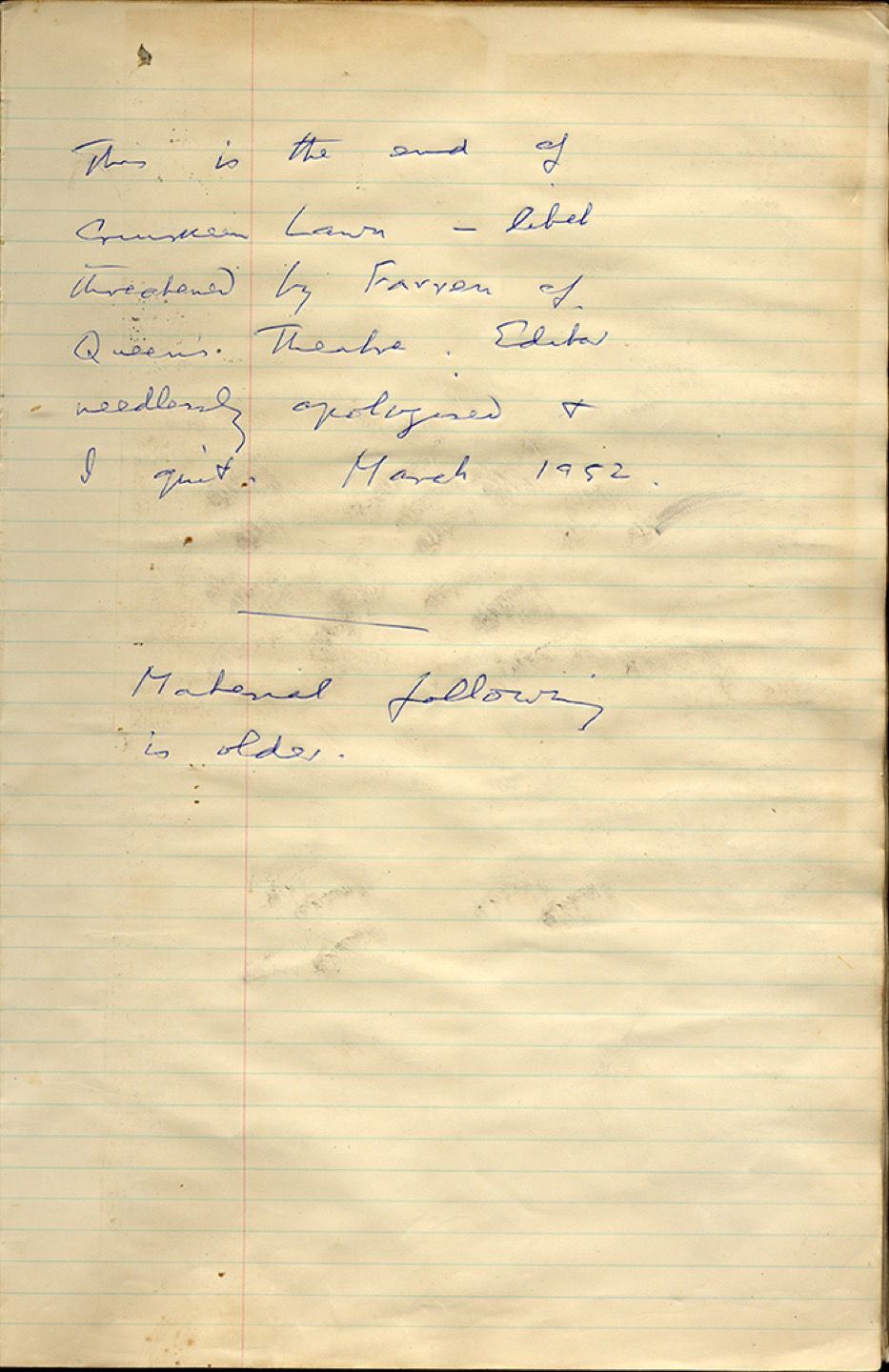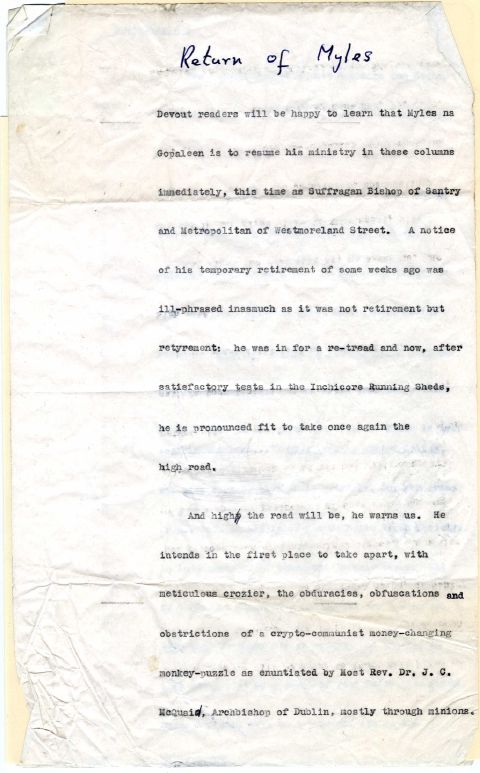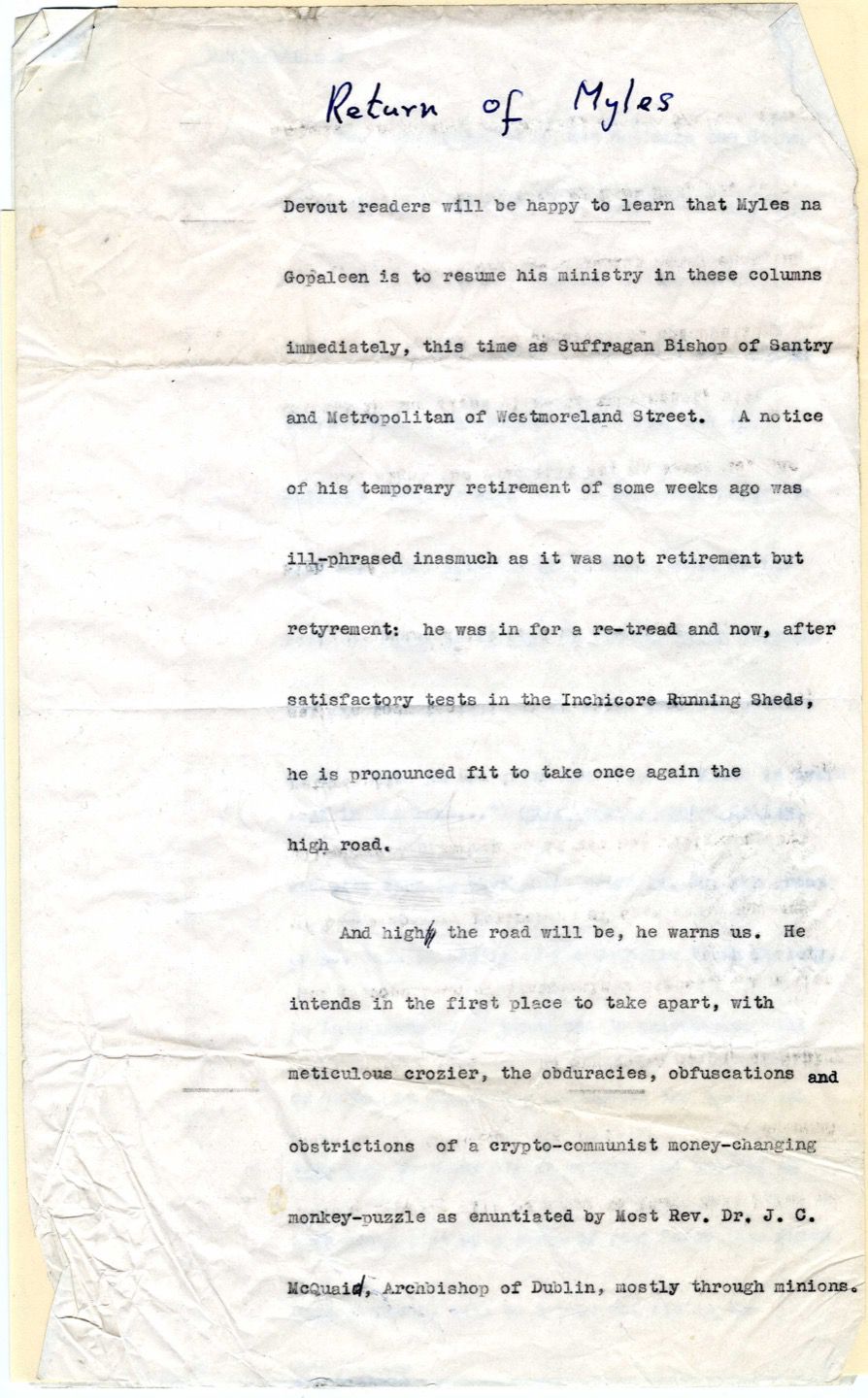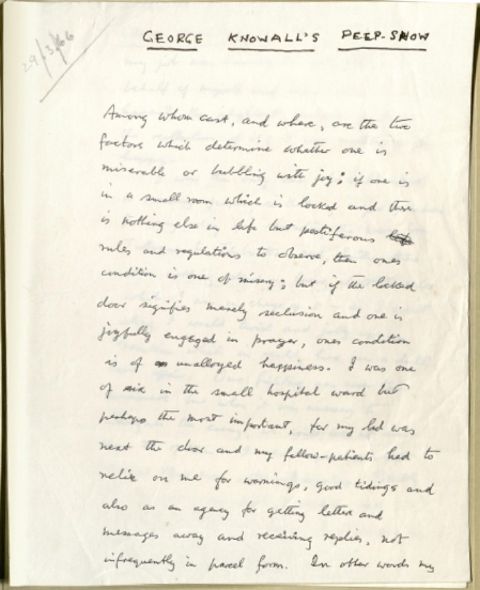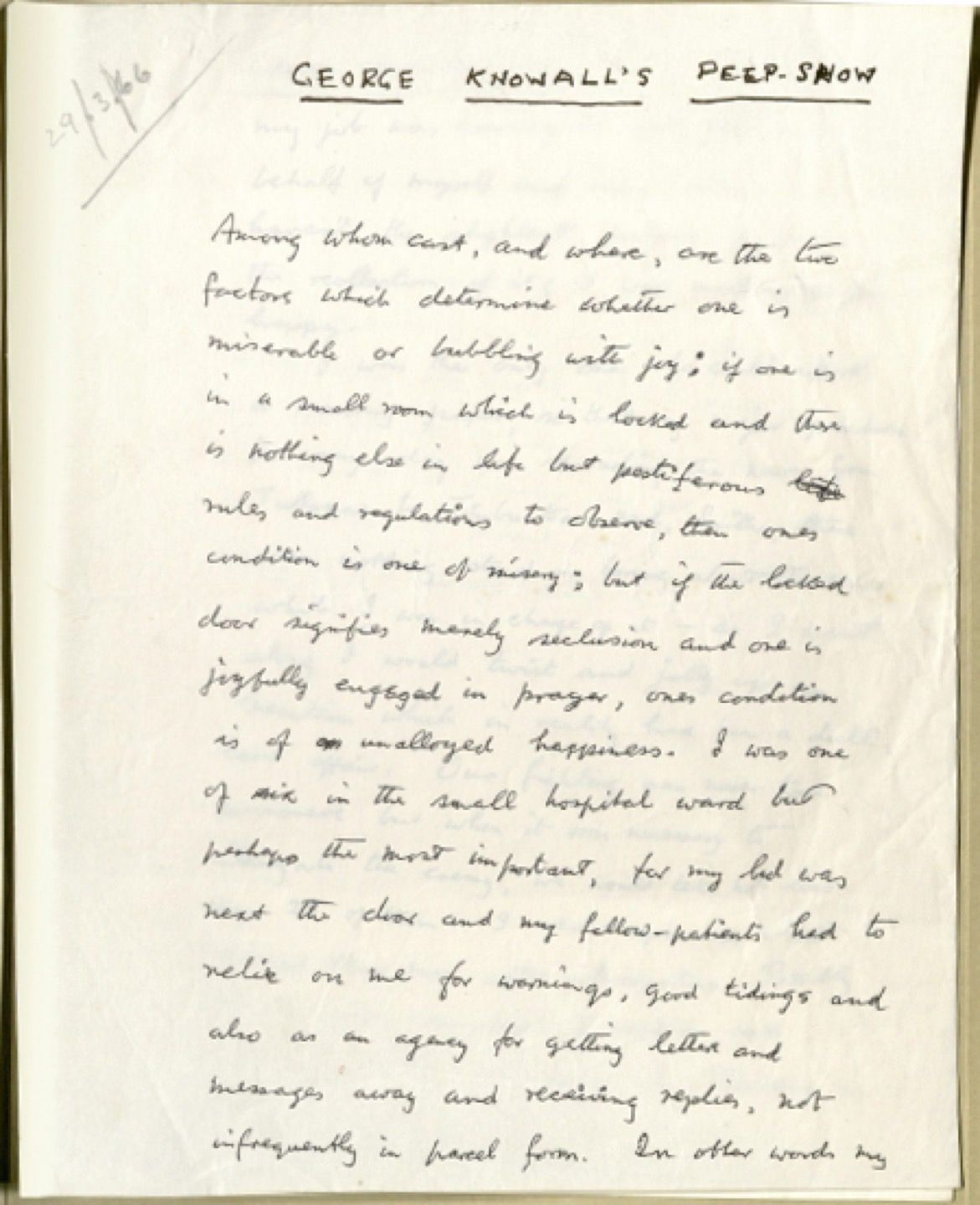Columnist
Little Brown Jug
On more than one occasion, O’Nolan confided to his brother Ciarán that he aspired to owning a provincial newspaper. He never explained his ambition, but it fits with other evidence suggesting that he yearned to influence the general populace and not just the literary elite.
Some have argued that the impetus for venturing into the journalistic genre with his Irish Times column stemmed from publishers’ rejection of his novels, especially The Third Policeman earlier that year. Yet is also possible to see it is a natural progression induced by the attention his earlier editorials had garnered. Published under one pseudonym or another, his jabs at politicians and other writers came to be regarded as not only entertaining but instructive.
Adopting the pen name Myles na gCopaleen (later na Gopaleen, dropping the enclitic), O’Nolan initially wrote his Times column in Irish, using it mainly to interrogate Gaelicization policies. Farcical in style, he titled it “Cruiskeen Lawn,” an anglicized spelling of the Irish phrase “crúiscín lán,” meaning “brimming little jug,” a reference to a traditional pastoral song in praise of Bacchus, the god of wine. By 1943, he switched to writing almost solely in English and took on a wider array of issues and opponents.
Totaling some 4,212 installments, “Cruiskeen Lawn” continued regularly until O’Nolan’s death in 1966—apart from interruptions due to holidays, ill health, or editorial disagreements. On those occasions and others, O’Nolan sometimes engaged collaborators, principally his friends Niall Montgomery and Niall Sheridan, to masquerade as Myles and continue his diurnal diatribes.
Calling Card Games
In addition to a visiting card representing his official status as a private secretary to a government minister, O’Nolan created calling cards to represent his identity as Myles na Gopaleen. One version indicates Myles’ affiliation with The Irish Times and provides O’Nolan’s actual home address. Another whimsically offers Myles’ fictive domicile in Santry, a northside Dublin suburb.
O’Nolan never made up calling cards for Flann O’Brien or his other literary personas. Some critics have charged Myles with squeezing them out. Hugh Kenner slyly stated that when Myles began his columnizing career, “a great future lay behind him.” Recapitulating the common accusation, Joseph Brooker has remarked: “Flann O’Brien was a failure, and Myles na Gopaleen was to blame.” Yet Brooker goes on to endorse recent reappraisals of “Cruiskeen Lawn” and other writings O’Nolan signed as Myles.
Capital Extremity
After two years of writing his daily “Cruiskeen Lawn” column for The Irish Times, O’Nolan made bold to ask editor Bertie Smyllie for a raise.
As arguments in his favor, O’Nolan notes that he writes in both Irish and English, and bolsters the brand of Myles na Gopaleen through other literary activities, including the publication of a volume his Irish language novel An Béal Bocht and script writing for the stage. He adds that a collection of “Cruiskeen Lawn” columns (presumably selected from the scrapbooks he kept) will soon be issued as a book—the first of half a dozen such compilations that would be produced during his lifetime and after his death.
Smyllie rebuffed O’Nolan’s initial petitions for more pay, but after a year of sometimes testy, sometimes bantering exchanges, his column rate was modestly increased.
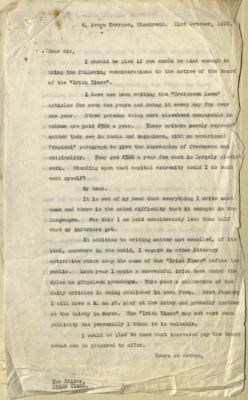
Draft of letter The Irish Times, asking for pay increase for Cruiskeen Lawn, 21 Oct 1942
Box 1, folder 41, Flann O’Brien Papers MS1997-027
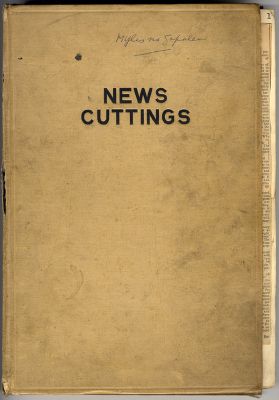
An Cruiskeen Lawn, scrapbook, 1950 September-1952 February
Box 14, Flann O’Brien Papers MS1997-027
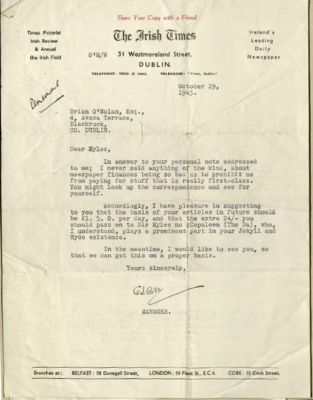
Irish Times to O’Nolan with increase offer for Cruiskeen Lawn, 29 Oct 1943
Box 1, folder 41, Flann O’Brien Papers MS1997-027
Clocked Out
One of O’Nolan’s “Cruiskeen Lawn” scrapbooks preserves a series of clippings that led to the demise of his nearly 20-year career as a civil servant and the near ruin of his column.
For many years, Andrew Clarkin owned a coal merchant’s shop on one of Dublin’s main boulevards. A large clock hung on the front of the building. Its hands were frozen in time, and several numbers had fallen from its face over the years.
In 1951, Clarkin was elected mayor. He urged citizens to spruce up the exterior of their houses and businesses to attract tourists. Yet he continued to neglect his clock, prompting Myles na Gopaleen to take him to task. In column after clever column, he drove a pointed acronym home like a spear: ACCIS (Andy Clarkin’s Clock is Still Stopped).
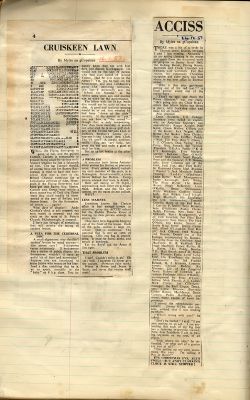
Draft of letter The Irish Times, asking for pay increase for Cruiskeen Lawn, 21 Oct 1942
Box 20, Flann O’Brien Papers MS1997-027
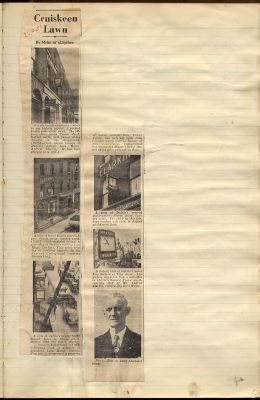
An Cruiskeen Lawn, scrapbook, 1950 September-1952 February
Box 20, Flann O’Brien Papers MS1997-027
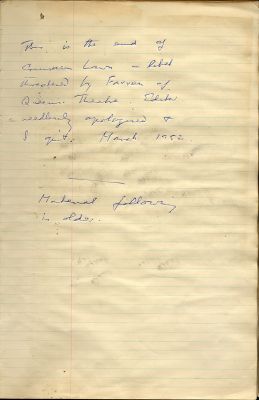
Irish Times to O’Nolan with increase offer for Cruiskeen Lawn, 29 Oct 1943
Box 20, Flann O’Brien Papers MS1997-027
Early Dismissal
The ACCIS shaming campaign against the popular mayor earned O’Nolan little favor, but when subsequent columns poked at another senior politician, the minister he served as private secretary was forced to order his dismissal. Increasing absenteeism and alcoholism were added to the list of causes, but since the latter was just then gaining recognition as a disease, allowed O’Nolan to resign for medical reasons and receive a pension.
“Cruiskeen Lawn” was suspended in the wake of the turmoil. O’Nolan pleaded his case with Minister MacEntee, claiming that he had not written the offending columns, that instead they were products of one of his collaborators. After several weeks, he was permitted to resurrect Myles and his columnizing. He drafted an announcement of his return, but it was never published.
Show Off
After forfeiting his civil service employment, O’Nolan supplemented his government pension and income from his “Cruiskeen Lawn” columns with earnings from other sources, including columns he wrote for other newspapers. For The Carlow Nationalist and Leinster Times, he wrote a humorous column under the pen name George Knowall (read: Know-all, a play on O’Nolan).
Probably O’Nolan’s last piece of writing, “George Knowall’s Peep Show” begins with the philosophical musings of a hospital patient. His bed nearest the door to the ward, he is content to perform the privileged duties of collecting and distributing mail for his fellow patients and offering them an embellished reading of the morning paper. The draft breaks off mid-sentence on the third page. O’Nolan died in his hospital bed three days later.

